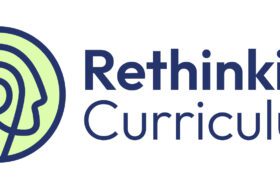The implications of cognitive scienceThe study of the human mind, such as the processes of thought, memory, attention and perception on education and the development of the science of learning (Deans for Impact 2015), have gained enormous influence in recent years. Through inquiry into psychology and neuroscience, research into the mental processes of learning has informed the ways that we deliver and present information to children and young people. The cognitive process of learning, that is exactly how we retain and transferThe processes of applying learning to new situations knowledge and skills, is something that all teachers consider (Didau and Rose 2016) whether consciously or not, in our daily decision-making about how best to present, explain and facilitate practice in our subjects. We rely upon our assumptions and understanding of how pupils learn. Engaging with cognitive science can equip us with valuable information about ways in which pupils retain knowledge and skills in the long term, which will enable us to develop more effective classroom strategies. In this video, we hear from Jonathan Firth, Teaching Fellow in Psychology, and Paul Howard-Jones, Professor of Neuroscience and Education. As you watch, consider:
- How can the science of learning help inform our practice as teachers?
- What are some of the key principles of memory that might be helpful to you?





